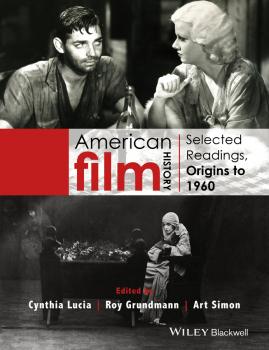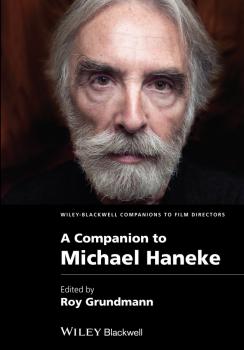Roy Grundmann
Список книг автора Roy GrundmannAmerican Film History. Selected Readings, Origins to 1960
This authoritative collection of introductory and specialized readings explores the rich and innovative history of this period in American cinema. Spanning an essential range of subjects from the early 1900s Nickelodeon to the decline of the studio system in the 1960s, it combines a broad historical context with careful readings of individual films. Charts the rise of film in early twentieth-century America from its origins to 1960, exploring mainstream trends and developments, along with topics often relegated to the margins of standard film histories Covers diverse issues ranging from silent film and its iconic figures such as Charlie Chaplin, to the coming of sound and the rise of film genres, studio moguls, and, later, the Production Code and Cold War Blacklist Designed with both students and scholars in mind: each section opens with an historical overview and includes chapters that provide close, careful readings of individual films clustered around specific topics Accessibly structured by historical period, offering valuable cultural, social, and political contexts Contains careful, close analysis of key filmmakers and films from the era including D.W. Griffith, Charles Chaplin, Buster Keaton, Erich von Stroheim, Cecil B. DeMille, Don Juan, The Jazz Singer, I Am a Fugitive from a Chain Gang, Scarface, Red Dust, Glorifying the American Girl, Meet Me in St. Louis, Citizen Kane, Bambi, Frank Capra’s Why We Fight series, The Strange Love of Martha Ivers, Rebel Without a Cause, Force of Evil, and selected American avant-garde and underground films, among many others. Additional online resources such as sample syllabi, which include suggested readings and filmographies for both general specialized courses, will be available online. May be used alongside American Film History: Selected Readings, 1960 to the Present, to provide an authoritative study of American cinema through the new millennium
American Film History. Selected Readings, 1960 to the Present
From the American underground film to the blockbuster superhero, this authoritative collection of introductory and specialized readings explores the core issues and developments in American cinematic history during the second half of the twentieth-century through the present day. Considers essential subjects that have shaped the American film industry—from the impact of television and CGI to the rise of independent and underground film; from the impact of the civil rights, feminist and LGBT movements to that of 9/11. Features a student-friendly structure dividing coverage into the periods 1960-1975, 1976-1990, and 1991 to the present day, each of which opens with an historical overview Brings together a rich and varied selection of contributions by established film scholars, combining broad historical, social, and political contexts with detailed analysis of individual films, including Midnight Cowboy, Nashville, Cat Ballou, Chicago, Back to the Future, Killer of Sheep, Daughters of the Dust, Nothing But a Man, Ali, Easy Rider, The Conversation, The Texas Chain Saw Massacre, Longtime Companion, The Matrix, The War Tapes, the Batman films, and selected avant-garde and documentary films, among many others. Additional online resources, such as sample syllabi, which include suggested readings and filmographies, for both general and specialized courses, will be available online. May be used alongside American Film History: Selected Readings, Origins to 1960 to provide an authoritative study of American cinema from its earliest days through the new millennium
A Companion to Michael Haneke
A Companion to Michael Haneke is a definitive collection of newly-commissioned work that covers Haneke's body of work in its entirety, catering to students and scholars of Haneke at a time when interest in the director and his work is soaring. Introduces one of the most important directors to have emerged on the global cinema scene in the past fifteen years Includes exclusive interviews with Michael Haneke, including an interview discussion of The White Ribbon Considers themes, topics, and subjects that have formed the nucleus of the director's life's work: the fate of European cinema, Haneke in Hollywood, pornography, alienation, citizenship, colonialism, and the gaze of surveillance Features critical examinations of La Pianiste, Time of the Wolf, Three Paths to the Lake and Caché, amongst others


